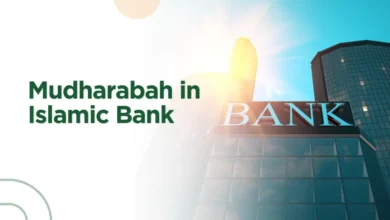Muamalah Fiqh
-

Be Careful! These 3 Defects Make The Mudarabah Contract Become Riba
Who isn’t tempted by the promise of immense wealth in this world and paradise in the afterlife? This is surely the dream of all of us. So, it’s no surprise that enthusiasm for financial migration and ridding our wealth of usury is currently at an all-time high. We want to increase our assets, but through paths that please Allah ﷻ.…
Read More » -

Ethics of Profit-Sharing Negotiations in Islam
In Islam, profit sharing negotiations are never solely focused on results. It has to do with reaching a consensus with full agreement from each party. Our Ethics, character and intention are all reflected in the process itself, in the way we conduct ourself in the negotiation, in the way we value our business partner and their effort in profit percentage,…
Read More » -

Mudharabah in Islamic Bank
Mudharabah is a key concept in the Islamic business and economic system. This contract serves as a foundation for financing and fundraising instruments in the Islamic financial industry. Based on profit-sharing based on business performance, the Mudharabah contract is considered fairer and more equitable than conventional interest-based lending systems, which burden business managers in the event of adverse events. This…
Read More » -

Differences Between Sharia Securities Crowdfunding and Sharia Peer-to-Peer Lending
In recent years, the development of financial technology (fintech) in Indonesia has significantly impacted the access to capital for Micro, Small, and Medium Enterprises (MSMEs). Two popular fintech innovations in the context of sharia financing are Sharia Securities Crowdfunding (SCF) and Sharia Peer-to-Peer (P2P) Lending. Both offer different solutions for MSMEs to obtain funds in accordance with sharia principles. Definitions…
Read More » -

Islamic Guidance: Is Everything Without Prohibition Permissible?
“There’s no evidence that it’s haram, so it’s permissible, right ?”Stop! Wait a minute… Don’t rush into that thought if you don’t want to fall into doubt. After all, not everything that seems safe in our eyes is actually safe in the sight of Allah ﷻ . Sometimes it can even be dangerous because we don’t understand the sharia law.…
Read More » -

Game of Attention in Islamic Perspective
Attention has become a commodity in today’s world. There is intense competition among social media platforms and entertainment channels to capture every moment of human attention. Human focus is exploited and manipulated in what many academics refer to as the attention economy which is brought about by this continual pull on the mind. In Islam, human attention is valued as…
Read More » -

Islamic Relief Through Extension of Debt Repayment Period
Talking about debt, sometimes you immediately feel tense, right? Especially when talking about late payments. The impression is immediately negative. As if the person who is in arrears must be negligent… or even considered to have no intention of paying. In fact, it is not always like that. Because there are people who are really having a hard time. They…
Read More » -

Hoarding: The Real Economic Problem
(Sharia Reflection on Inequality and Distribution Stagnation) Abundant resources, but the majority of people in it still live in poverty?This is not just an irony, but a bitter reality that occurs in many countries that are said to be rich. There are agricultural products. The sea is vast. The mines are full. The rice fields are fertile. But only a…
Read More » -

Business Partners Split? A Test of Syirkah Trust
Building a business with friends, relatives, or colleagues that you trust as business partners is like riding a boat together: if the oars are not in tune, the direction can be unstable. Especially if someone starts to be dishonest, the boat could sink, trust will be shattered, and the partnership will end. In fact, in Islam, partnership or partnership is…
Read More »


